

There is a new wave of justice consciousness rising in Taiwan, a country where 12% of the population is currently estimated to be vegetarian, the third highest rate in the world. Over the last few years, Taiwanese animal advocates have helped expose the injustice of the dairy and egg industries, motivating increasing numbers of people not only to give up eating meat, but to become vegan and entirely end their participation in the use or harming of our fellow animals for any purpose.
With today's release of our web site and films for free viewing in Traditional Chinese, Tribe of Heart hopes to make a humble contribution in support of this new generation's inspiring efforts!
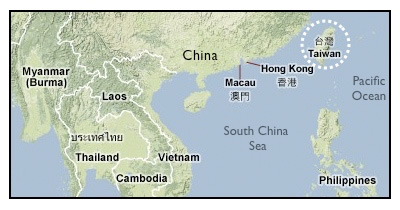
The Taiwanese advocacy community is mobilizing to raise the status of our fellow animals from exploited beings to valued members of the moral community. Earlier this month, they successfully staged Taiwan's second annual Animal Rights March (news story, photos and video here). In the last few years, they have held the country's first Vegan Fair, organized numerous speeches and school presentations, conducted street-level education, created robust social media outreach tools, and carried out activism training. 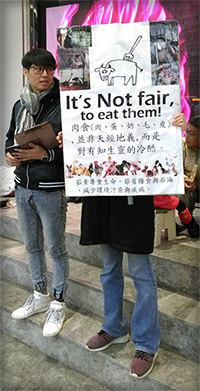 The country's first farm animal sanctuary recently opened its barn doors, and this past June, Taiwanese animal advocates joined with activists in more than a dozen other countries to celebrate their first National Animal Rights Day.
The country's first farm animal sanctuary recently opened its barn doors, and this past June, Taiwanese animal advocates joined with activists in more than a dozen other countries to celebrate their first National Animal Rights Day.
We learned about all this exciting activism while trying to locate a volunteer who could help us perfect the Traditional Chinese versions of our films for Global Tribal Cinema -- which will not only reach viewers in Taiwan, but Hong Kong as well. In doing our research, we were fortunate to connect with Meg Jones, a remarkable activist who was born and raised in Taipei, but has been living in the United States for the last decade.
Meg's journey as an activist began three and a half years ago when she found herself drawn to social media pages about veganism. An animal lover since childhood, she had never made the connection between her beloved companion animals and those who were exploited and killed for food. She became vegan overnight, but it didn't feel like that was enough.
"I couldn't stay silent and had to help the voiceless," Meg told us. "So I began to spread veganism on social media every day. One day, I saw an incredible English-language video. I had to share it with my people, so I translated the contents and typed them into the description box. But before I hit the Send button, I felt something was missing. I didn't feel that people would pay attention or enjoy the video without subtitles, so I decided to use the only software I knew to complete the subtitles, and the reactions were awesome! People liked it, and everyone was sharing it."
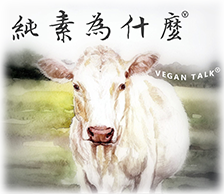 Meg has been translating and posting animal rights and vegan videos ever since. Some have acquired over one million views! You can see her work at these sites: Vegan Talk (bilingual), Vegan 30, and Best Video You Will Ever See – Asian. Since Meg's vegan awareness is relatively recent, she is an ideal position to understand the mindset of those who have not yet awakened to the issues, and is able to relate to them with authenticity and compassion. Each time she hears of another person making a commitment to become vegan or get involved in activism as a result of her translation work, she feels her mission has been fulfilled.
Meg has been translating and posting animal rights and vegan videos ever since. Some have acquired over one million views! You can see her work at these sites: Vegan Talk (bilingual), Vegan 30, and Best Video You Will Ever See – Asian. Since Meg's vegan awareness is relatively recent, she is an ideal position to understand the mindset of those who have not yet awakened to the issues, and is able to relate to them with authenticity and compassion. Each time she hears of another person making a commitment to become vegan or get involved in activism as a result of her translation work, she feels her mission has been fulfilled.
One of the things we appreciated about working with Meg was her boldness and creativity in demonstrating how language can subconsciously shape our perceptions of "others." For example, in her work translating dozens of English-language videos into Traditional Chinese, Meg implemented a new approach to using personal pronouns. She explained that in Traditional Chinese, there is a dedicated indefinite pronoun for our fellow animals, 牠, that means something between "he/she" and "it." 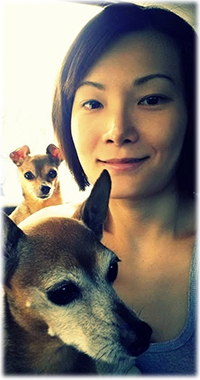 But when an animal has been given a name, or their gender is known or mentioned, Meg and others in the Taiwanese activist community take it as an opportunity to start using the personal pronouns "he/she", getting people used to the idea that acknowledging the dignity and individuality of our fellow animals is normal and appropriate.
But when an animal has been given a name, or their gender is known or mentioned, Meg and others in the Taiwanese activist community take it as an opportunity to start using the personal pronouns "he/she", getting people used to the idea that acknowledging the dignity and individuality of our fellow animals is normal and appropriate.
Meg also noticed that the word vegan was increasingly being used to refer solely to a plant-based diet, rather than a philosophy of life grounded in nonviolence toward all. So she started using the phrase 純素者 meaning "ethical vegan" in Traditional Chinese, to clarify and communicate a commitment to nonparticipation in the harm of others. While this particular phrase did not previously exist in the Chinese language, it has since become more widely adopted, thanks to Meg and others who understand the need to adjust our language so that it better reflects our evolving understanding of both compassion and justice.
The extreme challenges facing our world today demand that each of us become informed and involved, that we bring together our best as individuals, and that we combine the best of every culture's wisdom and compassion. In Taiwan, for example, Buddhist cuisine devised alternatives to animal flesh and refined their formulations over hundreds of years. These sophisticated meat analogs have been responsible for inspiring many delicious and highly nutritional modern products that are gaining ever greater acceptance worldwide. This specialized knowledge from Taiwanese culture has made a major contribution to the task of creating a human society that is based on justice and care for all beings. Access to nonviolent alternatives, in all aspects of life, helps accelerate our society's movement away from violence and exploitation. As today's animal advocates in Taiwan continue to grow in numbers and find their own unique path, we look forward to all they will contribute to the global justice movement.
We are deeply grateful for the chance to collaborate with volunteer translators like Meg and Zhiyuan (read his story here), who bring so much talent and dedication to the work. Opportunities like these enrich our appreciation and understanding of other cultures, and inform our approach to making our future work more accessible to audiences around the world.
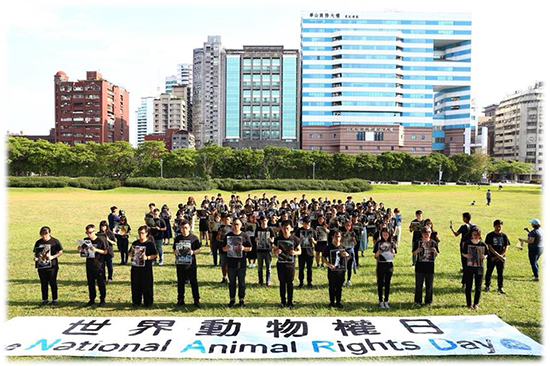
Copyright © 2018 Tribe of Heart Ltd.